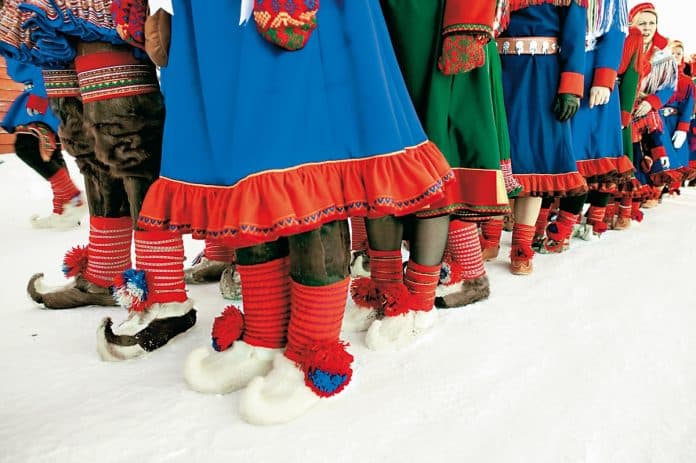On this International Day of Indigenous Peoples in 2023, we pay homage to the pivotal role that Indigenous youth must occupy in decision-making processes. Sami are the Indigenous People of Finland, Norway and Sweden. Young Sami have taken the initiative to preserve their traditional way of living in Norway.
The persistent violations of the rights of Indigenous Peoples have long been a pressing concern, stemming from historical burdens of colonization and struggles to adapt to a rapidly changing society. However, amid these challenges, 9 August serves as a reminder that Indigenous Peoples have the right to self-determination, enabling them to make meaningful decisions in a manner that respects and preserves their unique cultural identities.

Indigenous youth as agents of change for self-determination
This year the International Day of the World’s Indigenous Peoples is celebrated under the title “Indigenous youth as agents of change for self-determination”.
In recent times, Indigenous youth have emerged as agents of change, actively confronting some of humanity’s most pressing crises. They are leveraging cutting-edge technologies, acquiring new skills, and offering innovative solutions to create a more sustainable and peaceful future for both their communities and the planet.
Indigenous youth participation in global efforts concerning climate change mitigation, peacebuilding, and digital cooperation is essential to effectively safeguard their rights and shape a brighter tomorrow.

“Indigenous knowledge and traditions are deeply rooted in sustainable development and can help to solve many of our common challenges. It is therefore vital that young Indigenous Peoples, both women and men, are involved in decision-making. The choices made today will determine the world of tomorrow” said Secretary-General António Guterres on the occasion of this year’s International Day of Indigenous Peoples.

Sami youth activism in Norway
In Norway, Sami youth are actively participating in the global indigenous activism movement, exemplified by the passionate protests led by young Sami activists in February 2023. Their demonstration primarily revolves around the contentious issue of wind turbines in Fosen, Trøndelag, where Norway’s largest wind power plant, consisting of 151 turbines, is located.
The controversy stems from a ruling made by the Norwegian Supreme Court in October 2021, which found the wind farm to be in violation of the rights of the indigenous Sami people. According to the court, the turbines obstructed the cultural practices protected under the UN Covenant on Civil and Political Rights.

No action after 500 days
Even after 500 days since the ruling, no concrete actions had been taken to comply with the Supreme Court’s decision, and the wind turbines continued to operate as before. Naturally, this lack of progress sparked significant dissatisfaction among the Sami activists, motivating them to take to the streets and block the entrance to the Ministry of Petroleum and Energy in Oslo.
The young Sami activists argue that the rights of indigenous communities and the imperative of conserving nature should take precedence over the pursuit of new energy sources in climate change measures.
In their pursuit of justice, the young Sami activists in Norway are proving to be a formidable force, uniting with indigenous movements worldwide, and standing strong in their commitment to safeguarding their cultural heritage and the environment for generations to come.
The last time an issue concerning Sami rights attracted so much attention was when the Alta Actionists went on hunger strike outside the Norwegian Parliament more than 40 years ago.




